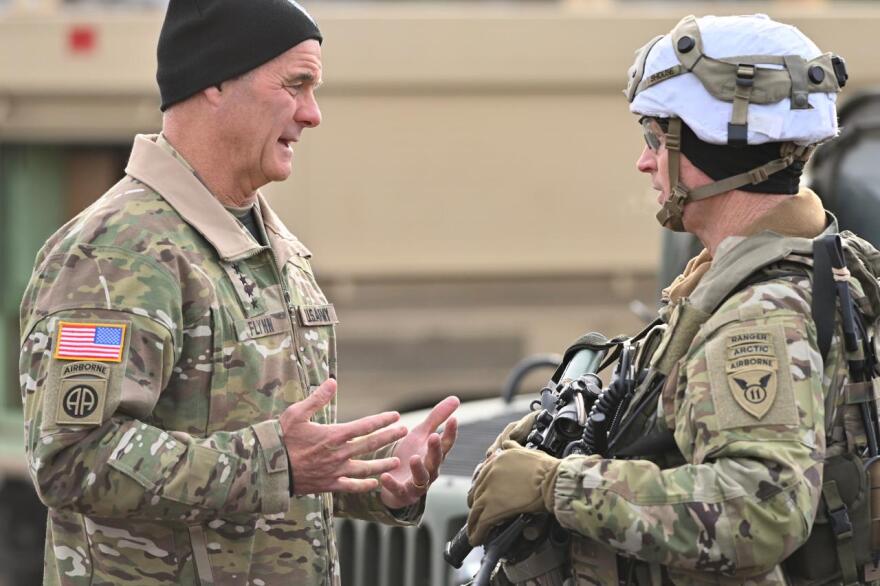JPMRC ‘keeps our forces in the region,’ where it’s most likely to operate, Army’s 4-star Pacific commander says
The big Army training exercise that got under way this week near Fairbanks demonstrates how the service is reorienting its Alaska-based force from one that frequently deploys to far-flung hotspots overseas to one that lives and operates in the Arctic and around the Pacific.

That’s according to two Army generals who spoke with reporters Thursday about how the Joint Pacific Multinational Readiness Center-Alaska exercise, or JPMRC, reflects that change of mission by enabling 11th Airborne Division soldiers to train here so they can operate in the Arctic.
“This keeps our forces in the region,” says Gen. Charles Flynn, who heads up the Army’s Pacific Command. “It allows us to train in the environment and the conditions that we’re most likely to operate in.”
Flynn said the JPMRC enables U.S. and allied military personnel to train with each members of other branches of the service to improve the interoperability that’s essential to battlefield success.
“It’s also a superb environment for our multinational partners to participate in training again in Alaska and Hawaii,” he said, “and the learning and the growth and the development that goes on there is vital.”

Flynn says there are more multinational partners in this year’s exercise than the previous two that’ve been conducted. And more allied nations are represented, in greater numbers.
“The Canadian Army has agreed to send a battalion task force every other year up here, for this rotation,” he said. “I’m going to have a conversation with the chief of the ground forces in Mongolia, who’s here visiting us. (And) the Italian force that’s here. Finns, Norway, Nepal …”
Maj. Gen. Brian Eifler, the 11th Airborne commander, said soldiers with the JBER-based unit also have traveled to other nations around the Indo-Pacific to train in conditions similar to those in the Arctic.
“This year, we trained in the Himalayas, in India,” he said. “We trained in northern Japan. We’re training all over the Indo-Pacific, with other nations that have high-altitude terrain, as well as other Arctic nations -- Canada, as well.”
Eifler says the exercise has also given the Army a chance to try out some new equipment, including new versions of a field kitchen, cold-weather outerwear, skiis and, for the first time in decades, snowmachines.
The 12-day field-training exercise in the Yukon Training Area east of Fairbanks ends next week



